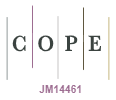Notes for a pedagogy of helplessness: ethics, aesthetics and alterity as principles of freedom
DOI:
https://doi.org/10.5585/eccos.n71.25701Keywords:
aesthetics, ethic, education, freedom, helplessnessAbstract
This work aims to reflect on the ethical-political connection between Schiller’s project of aesthetic education and the human condition of helplessness, seen as a central element in the constitution of subjectivity. The objective is to relate his conception of sensibility to a pedagogy oriented toward freedom, highlighting the recognition of nostalgic strangeness as the foundation for the formation of the self in communion. The first part addresses the inclusion of the other in a relational dimension, which defines the political arrangement in its articulation with ethics, considering it as a condition for access to sensibility and as part of a notion of freedom that involves the subject’s self-development. The second part explores sensitive coexistence as a foundation for thinking about the formative character of aesthetics, understanding sensibility as a libertarian educational demand, sustained by helplessness as a concrete possibility of alterity, realized through the recognition of differences. The goal is to open space for a formative process that values coexistence and evolves in the pursuit of a way of life in communion.
Downloads
References
DIDI-HUBERMAN, Georges. Imagem parecida ou imagem que quer parecer. In: DIDI-HUBERMAN, Georges. Imagens apesar de tudo. Tradução de Vanessa Brito e João Pedro Cachopo. Lisboa, PT: KKYM, 2012. p. 191-229
FREUD, Sigmund. O mal-estar na civilização (1930). In: FREUD, S. Obras completas, volume 18: o mal-estar na civilização, novas conferências introdutórias à psicanálise e outros textos (1930-1936). Tradução de Paulo César de Souza. São Paulo, SP: Companhia das Letras, v. 18, 2010. p. 13-122.
FREUD, Sigmund. O inquietante (1919). In: FREUD, S. Obras completas, volume 14: história de neurose infantil (“o homem dos lobos”), além do princípio do prazer e outros textos (1917-1919). Tradução de Paulo César de Souza. 1. ed. São Paulo, SP: Companhia das Letras, v. 14, 2010. p. 329-376.
FREUD, Sigmund. Gesammelte Werke. Braunschweig, AL: Ideenbrücke Verlag, 2016.
GALLO, Sílvio. Educação, criação e pluralidade de mundos: as múltiplas dimensões do aprender. In: TREVISAN, Amarildo Luiz; ROSSATTO, Noeli Dutra. Filosofia e educação: interatividade, singularidade e mundo comum. Campinas, SP: Mercado de Letras, 2013. p. 181-196
GODINHO, Ana. No meio das imagens. In: FURTADO, Rita Márcia Magalhães (Org.). Pensar o ver: perspectivas estéticas e possibilidades formadoras. Campinas, SP: Mercado das Letras, 2021. p. 21-32
INGOLD, Tim. Antropologia e/como educação. Tradução de Vitor Emanuel Santos Lima e Lconardo Rangel dos Reis. Petrópolis, RJ: Vozes, 2020.
JOSSO, Marie-Christine. A formação como procura de uma arte de viver em ligação e partilha. In: Marie-Christine. Experiências de vida e formação. Porto: Educa, 2011. p. 65-82
KASTRUP, Virgínia. Experiência Estética para uma Aprendizagem Inventiva: notas sobre a acessibilidade de pessoas cegas a museus. Informática na Educação: teoria & prática, Porto Alegre, RS, v. 13, n. 2, p. 38-45, jul./dez. 2010.
LOPES, Silvina Rodrigues. Do ensino como ofício inquieto. In: Silvina Rodrigues. O nascer do mundo nas suas passagens.. Lisboa, PT: Edições do Saguão, 2021. p. 117-146
MONDZAIN, Marie-José. Confiscação das palavras, das imagens e do tempo [por uma outra radicalidade]. Tradução de Pedro Corgozinho. Belo Horizonte, MG: Relicário, 2020.
SANTOS, Leonel Ribeiro (Coord.). Educação estética, a dimensão esquecida. In: SANTOS, Leonel Ribeiro. Educação estética e utopia política. Lisboa, PT: Edições Colibri, 1996. p. 203-220
SANTOS, Natália De Toni Guimarães; FORTES, Isabel. Desamparo e alteridade: o sujeito e a dupla face do outro. Psicologia USP, São Paulo, v. 22, n. 4, p. 747-769, dez. 2011.
SCHILLER, Friedrich. A educação estética do homem. Tradução de Roberto Schwarz e Márcio Suzuki. 4. ed. São Paulo: Iluminuras, 2002.
SOUZA, Mauricio Rodrigues; BIRMAN, Joel. Ética e estética da alteridade em Horkheimer, Adorno e Freud: comentários a partir de “elementos do anti-semitismo” e “o inquietante”. Psicologia & Sociedade, Recife, 26, n. 2, p. 251-260, ago. 2014.
Downloads
Published
How to Cite
Issue
Section
License
Copyright (c) 2024 Guilherme Lucian

This work is licensed under a Creative Commons Attribution-NonCommercial-ShareAlike 4.0 International License.
- Abstract 55
- pdf (Português (Brasil)) 41






